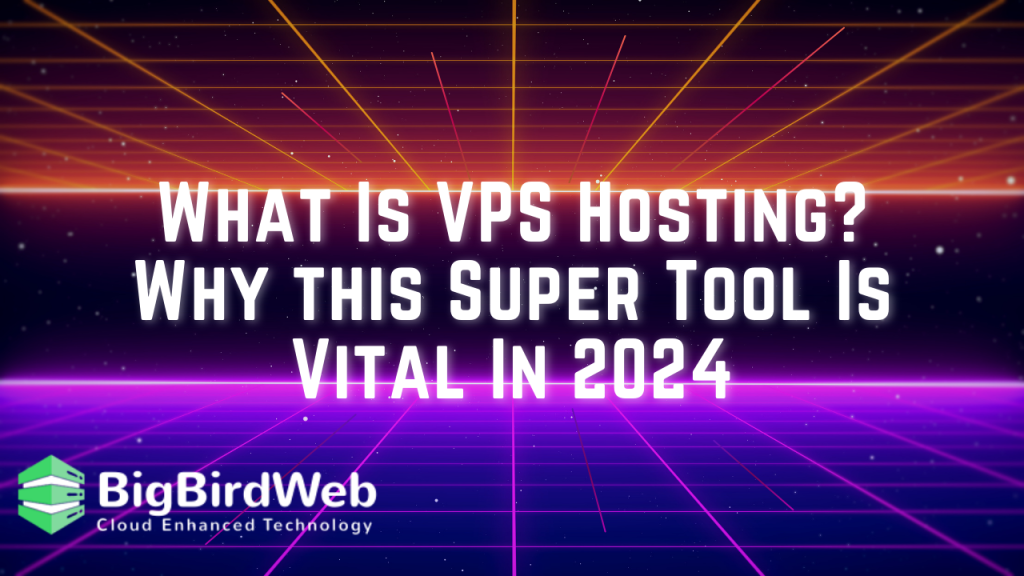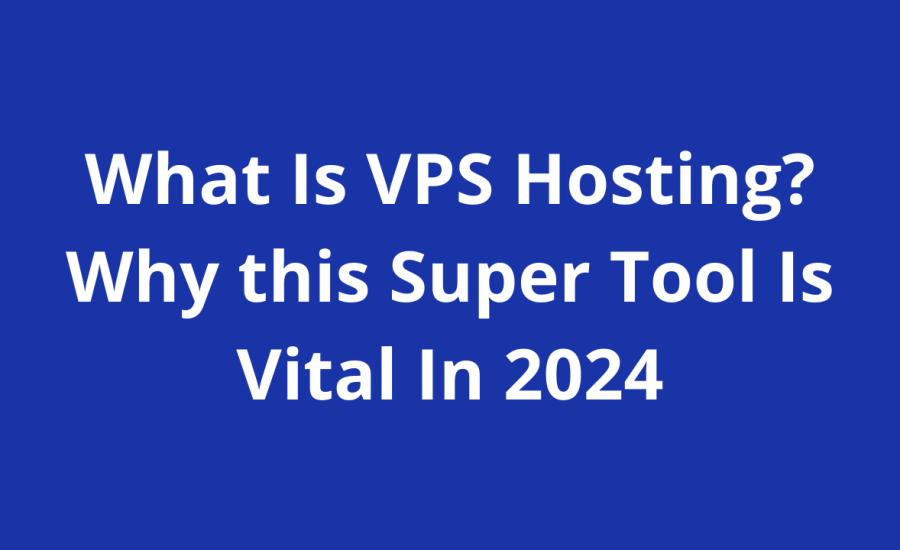In the world of web hosting, Virtual Private Servers (VPS) hosting play a crucial role in offering a balanced blend of performance, control, and cost-efficiency. Whether you’re running a blog, an e-commerce store, or a complex application, understanding what a VPS is and how it works can help you make an informed decision about your hosting needs. This blog will delve into the specifics of what a VPS is, how it operates, and why it might be the best VPS hosting work for your requirements
Table of Contents
What is a VPS?

A Virtual Private Server (VPS) is a type of hosting that uses virtualization technology to provide dedicated resources on a physical server shared with other users. Unlike shared hosting, where multiple sites share the same resources, a VPS allocates specific portions of CPU, RAM, and storage to each user. This setup ensures that your website or application operates independently of others on the same server, offering better performance and reliability.
How Does a VPS Work?
Understanding the mechanics of a VPS helps in appreciating its advantages:
- Virtualization Technology: The backbone of a VPS is virtualization. This technology, using software called a hypervisor, creates virtual machines (VMs) that simulate separate physical servers within a single physical server. Popular hypervisors include VMware, KVM, and Hyper-V.
- Partitioning the Server: The hypervisor partitions the physical server into several virtual servers, each isolated from the others. This means that even though they share the same physical infrastructure, each VPS acts as an independent server with its own operating system and dedicated resources.
- Resource Allocation: Resources such as CPU, RAM, and disk space are allocated to each VPS. These resources are guaranteed and not affected by the activity on other virtual servers on the same physical machine.
- Operating System Flexibility: Users can choose their preferred operating system (OS) for their VPS. This flexibility allows for customization and the ability to run applications specific to the chosen OS.
- Scalability: VPS hosting is highly scalable. As your needs grow, you can easily upgrade your resources without significant downtime or disruption. This scalability is one of the hallmarks of the best VPS hosting work.
Advantages of Using a VPS
- Enhanced Performance: With dedicated resources, a VPS offers better performance compared to shared hosting, ensuring your website or application runs smoothly even during traffic spikes.
- Cost-Effective: VPS hosting provides many of the benefits of a dedicated server at a fraction of the cost, making it an attractive option for growing businesses. You can also refer to free web hosting on this link.
- Customization: You have full control over your virtual server, allowing you to install and configure any software you need.
- Security: The isolation provided by a VPS means that your data and applications are secure from other users on the same physical server.
- Reliability: VPS hosting offers higher reliability as the performance is not impacted by other users, unlike in shared hosting environments.
VPS Hosting vs. Other Hosting Types
VPS Hosting vs. Shared Hosting
Shared Hosting: In shared hosting, multiple websites share the same server and its resources. This can lead to performance issues if one site uses too many resources. It is generally the cheapest option but comes with limitations in terms of control and performance.
VPS Hosting: VPS hosting provides dedicated resources, offering better performance and more control compared to shared hosting. It is suitable for websites and applications that need more power and customization.
VPS Hosting vs. Dedicated Hosting
Dedicated Hosting: With dedicated hosting, you have an entire physical server dedicated to your website or application. This offers the highest level of performance, control, and security but comes at a higher cost.
VPS Hosting: VPS hosting offers many of the benefits of dedicated hosting but at a lower cost. It provides a balance of performance and affordability, making it suitable for a wide range of users.
Choosing the Best VPS Hosting Provider
When selecting a VPS hosting provider, consider the following factors:
- Performance: Look for providers that offer high-performance hardware and reliable uptime.
- Scalability: Ensure the provider allows easy upgrades as your needs grow.
- Support: Check if the provider offers 24/7 customer support and technical assistance.
- Security: Verify the security measures in place to protect your data.
- Cost: Compare pricing plans to find a provider that fits your budget while meeting your requirements.
Setting Up a VPS
Setting up a VPS involves a few straightforward steps:
- Choose a Hosting Plan: Select a VPS hosting plan that matches your resource needs and budget.
- Select an Operating System: Choose the OS you want to run on your VPS.
- Configure the Server: Once your VPS is provisioned, configure it by installing necessary software and applications.
- Deploy Your Website or Application: Upload your website files or deploy your application to the VPS.
- Monitor and Manage: Regularly monitor the performance and security of your VPS to ensure it operates optimally.
Common Use Cases for VPS Hosting
- Web Hosting: Ideal for hosting websites with moderate to high traffic that require more resources than shared hosting can provide.
- E-commerce: Suitable for online stores that need dedicated resources for better performance and security.
- Application Hosting: Perfect for hosting custom applications that require specific software configurations.
- Development and Testing: Provides a controlled environment for software development and testing.
FAQs
Q: What is a VPS? A: A VPS is a Virtual Private Server that uses virtualization technology to provide dedicated resources on a physical server shared with other users.
Q: How does a VPS work? A: A VPS works by using virtualization technology to create isolated virtual machines on a single physical server, each with its own dedicated resources and operating system.
Q: What are the advantages of using a VPS? A: Advantages include enhanced performance, cost-effectiveness, customization, security, and reliability.
Q: How does VPS hosting compare to shared hosting? A: VPS hosting offers dedicated resources and better performance compared to shared hosting, where multiple sites share the same resources.
Q: Is VPS hosting better than dedicated hosting? A: VPS hosting provides many of the benefits of dedicated hosting at a lower cost, making it suitable for those who need more control and performance than shared hosting but do not require a full dedicated server.
Q: How do I choose the best VPS hosting provider? A: Consider factors such as performance, scalability, support, security, and cost when selecting a VPS hosting provider.
Q: What are common use cases for VPS hosting? A: Common use cases include web hosting, e-commerce, application hosting, and development/testing environments.
Bonus Content: Tips for Optimizing Your VPS
- Regular Updates: Keep your operating system and software up to date to ensure security and performance.
- Security Measures: Implement firewalls, regular backups, and security patches to protect your VPS.
- Resource Management: Monitor resource usage and optimize configurations to prevent overloading your VPS.
- Performance Tuning: Fine-tune server settings and optimize applications to improve performance.
- Backup Solutions: Regularly back up your data to prevent loss in case of any issues.
Understanding what a VPS is and how it works can significantly impact the performance and reliability of your online presence. By choosing the best VPS hosting work, you can ensure that your website or application runs smoothly, securely, and efficiently, providing a seamless experience for your users. Whether you’re starting a new project or looking to upgrade your current hosting solution, a VPS offers the ideal balance of cost and performance.
